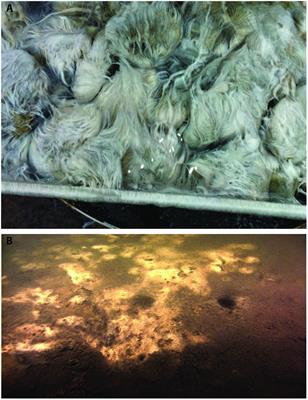ORIGINAL RESEARCH
Published on 08 May 2017
Novel Large Sulfur Bacteria in the Metagenomes of Groundwater-Fed Chemosynthetic Microbial Mats in the Lake Huron Basin

doi 10.3389/fmicb.2017.00791
- 7,396 views
- 30 citations
31k
Total downloads
159k
Total views and downloads
You will be redirected to our submission process.
ORIGINAL RESEARCH
Published on 08 May 2017

ORIGINAL RESEARCH
Published on 03 Feb 2017

ORIGINAL RESEARCH
Published on 14 Nov 2016

ORIGINAL RESEARCH
Published on 30 Aug 2016
![Metagenomic and PCR-Based Diversity Surveys of [FeFe]-Hydrogenases Combined with Isolation of Alkaliphilic Hydrogen-Producing Bacteria from the Serpentinite-Hosted Prony Hydrothermal Field, New Caledonia](https://www.frontiersin.org/files/myhome article library/191812/191812_Thumb_400.jpg)
ORIGINAL RESEARCH
Published on 22 Aug 2016

ORIGINAL RESEARCH
Published on 10 Aug 2016

ORIGINAL RESEARCH
Published on 05 Aug 2016

ORIGINAL RESEARCH
Published on 03 Aug 2016

ORIGINAL RESEARCH
Published on 28 Jul 2016

ORIGINAL RESEARCH
Published on 21 Jun 2016

ORIGINAL RESEARCH
Published on 21 Jun 2016

ORIGINAL RESEARCH
Published on 03 May 2016

